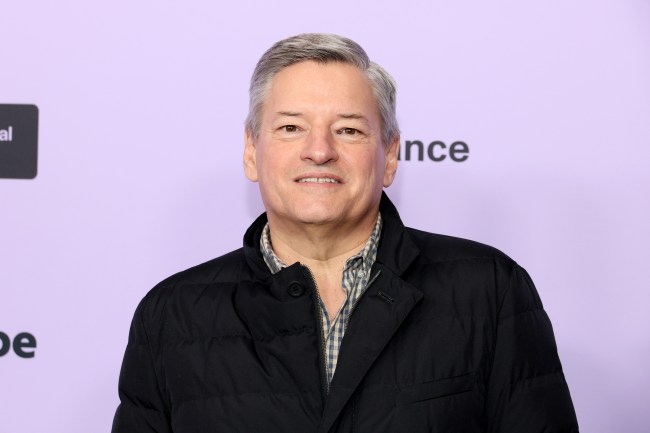If you think there’s seemingly no one who doesn’t have a Netflix account or who hasn’t seen “Squid Game,” there’s about 1.4 billion people in China who haven’t signed up, and the streamer’s co-CEO Ted Sarandos is just fine with that.
In a conversation with Semafor as part of the World Economy Summit in Washington on Wednesday, April 23, Sarandos said he spent years working to get a foothold in China at a time when everyone in Hollywood felt that that was the only way to truly be successful or to reach a billion dollars at the box office. In fact, while there was a period where the Chinese box office was a true gold mine for certain films that passed the test, it’s largely become less of a factor for many American movies.
Sarandos revealed that all of that effort eventually got him nowhere.
“Fifteen years ago, everyone thought it was existential. You had to get to China,” Sarandos said. “For us, I put in a couple of years of trying to do it.”
Sarandos explained Netflix had made a deal with a third party company that would give them a license to operate in China and not be blocked on the Internet. And there’s a reason it didn’t get much further than that.
“The content had to clear the censorship board to make it to air, and in three years, not a single episode of a Netflix show cleared the censorship board. Not one,” Sarandos said.
Turns out the Chinese government isn’t exactly thrilled with a direct-to-consumer Western company operating within their borders.
“They had no interest in us being in China,” he continued. “I watched everyone spend the next decade grinding out all their time to get into China and ultimately ended up in the same place I did, which was nowhere.”
Sarandos then boasted that it is one of the “rare companies in the U.S.” without exposure to China, its censorship, taxes, or tariffs (wink wink President Trump).
“There is a big business in the rest of the world that is happy to host Netflix,” he said.
In fact, the tariffs remark didn’t come up by accident. Sarandos was asked about why Hollywood doesn’t get more attention as an industry for its efforts in securing jobs in the U.S., to which Sarandos said the entertainment industry is “overlooked.”
“It’s easy to forget, Netflix alone, I think from about from 2020 through 2024, contributed $125 billion to the U.S. economy, created 140,000 production jobs, 500 jobs, we’ve shot films or television in all 50 states. The lion’s share of our investment is in the U.S,” he said. “But I do think it gets overlooked as an industry. We get kind of thrown under the bus in trade deals occasionally. People forget that this is a real business. You hardly ever see a sitting president photographed on a studio lot.”
He gave an example of building a billion dollar production facility in Mexico in which he was joined by the president of Mexico at the unveiling. Netflix has built their own facility in New Jersey quite recently, but Sarandos made the comparison that if a company were building a billion dollar factory that manufactures cars, someone would probably be there for a photo opp.
As a reminder, before President Trump announced (and then rescinded) his massive tariffs on much of the world, he had appointed Mel Gibson, Sylvester Stallone, and Jon Voight to be his “eyes and ears” as “special ambassadors” to Hollywood and prevent it from losing business to foreign countries. But in what should be a surprise to no one, the Los Angeles Times this week reported that the group of ambassadors hasn’t made any announcements about specific priorities or goals and has made virtually no contact with leaders in the community looking to bring production jobs back to Los Angeles or elsewhere stateside.
At least Sarandos is doing his part.



